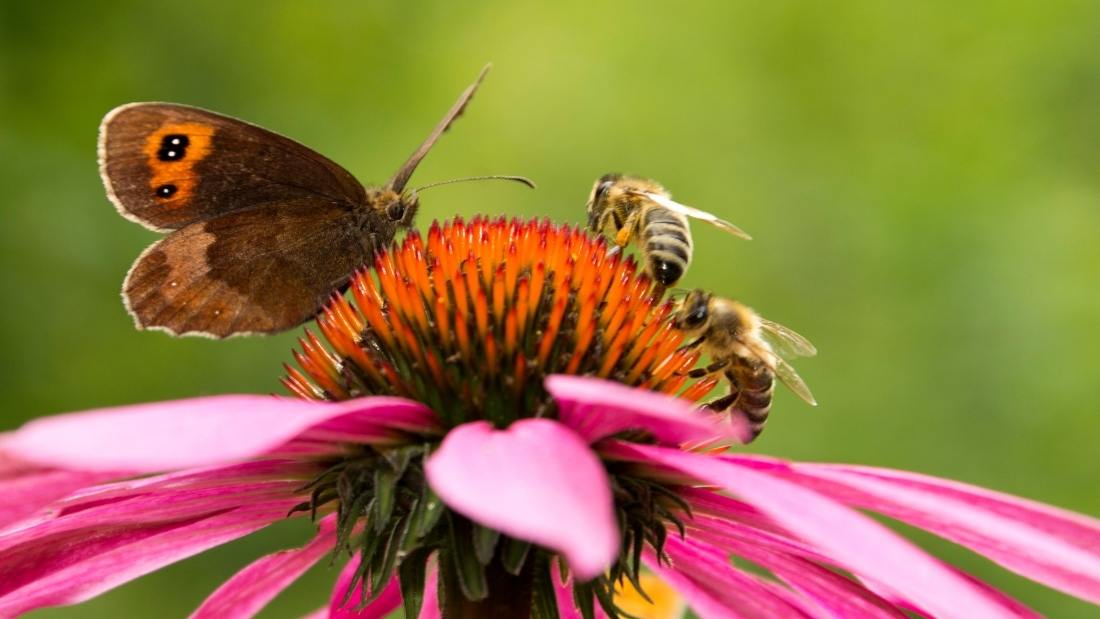Bees
Bees are some of the most important pollinators in the British ecosystem and, indeed, across the world. Without bees, life on Earth would be in deep trouble; bees help keep many flowering plants, crucial to so many ecosystems, living and thriving. People often think that eating honey helps bees. In fact, this couldn’t be further from the truth!

Why is eating honey harmful to bees?
Just like cows produce milk for their babies, bees make honey for their own colony – not for humans. Honey is a key source of energy and nutrients for bees and they stockpile it to get them through the winter.
Bees are so hardworking that to produce just 0.5kg of honey, a bee would need to fly 55,000 miles – that’s twice around the entire world!
Because some humans eat their honey, bees are fed a sugar water solution instead. This lacks the important nutrients they need and leads to the bees becoming diseased and often dying. To save money on keeping the beehives alive over the winter, many beekeepers will simply kill all of the bees. This can be done by burning, gassing or drowning the colony.
Plenty of research has shown that bees are not just little honey-making robots but are intelligent and sentient individuals capable of imagination, innovation and even distinguishing between many different human faces.
What about the environment?
Many people today are very concerned about the environment – as we should be! Human activity has caused catastrophic climate change and the extinction of many important species.
Environmentalists know that bees are important and that we should support bee populations.
However, what people don’t know is that there are around 270 species of bees in Britain, only one of which (the honeybee) produces honey. When we farm honey from honeybees, we are also killing off all the bees that are not honeybees – and these non-honeybee bees are the ones doing most of the pollination!




